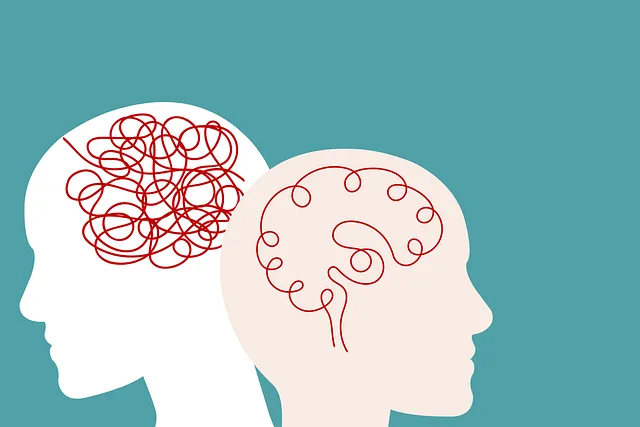Mood regulation is crucial for overall well-being, as emphasized by Golden Kaiser Permanente behavioral health services reviews. Key strategies include open communication, mindfulness practices like meditation, emotional intelligence, and Cognitive Behavioral Therapy (CBT). CBT, a core component of Kaiser's services, effectively targets negative thought patterns and behaviors, providing coping strategies for anxiety relief and confidence building. Mindfulness exercises, starting with breath awareness, improve emotional regulation and promote inner peace. Additionally, lifestyle adjustments such as balanced diets, regular physical activity, and adequate sleep are vital for achieving and maintaining emotional stability, supported by mental health policy analyses.
Discover effective mood regulation strategies to unlock emotional balance. This comprehensive guide explores various techniques, including Cognitive Behavioral Therapy (CBT), mindfulness practices, and lifestyle adjustments. Learn how these approaches, integrated within Kaiser Permanente’s Behavioral Health Services, can enhance mental well-being. Uncover the power of CBT in treating mood disorders, master mindfulness for daily stress reduction, and understand the impact of diet, exercise, and sleep on your emotional state. Explore golden strategies for improved mood stability backed by Kaiser Permanente behavioral health services reviews.
- Understanding Mood Regulation: Unlocking Emotional Balance
- The Role of Cognitive Behavioral Therapy (CBT) in Kaiser Permanente's Behavioral Health Services
- Mindfulness and Meditation Techniques for Daily Practice
- Lifestyle Adjustments: Diet, Exercise, and Sleep for Improved Mood Stability
Understanding Mood Regulation: Unlocking Emotional Balance

Understanding Mood Regulation: Unlocking Emotional Balance
Mood regulation is a vital aspect of overall well-being, enabling individuals to navigate life’s ups and downs with resilience. It involves a complex interplay between our thoughts, feelings, and behaviors, allowing us to maintain emotional balance and enhance our quality of life. Golden Kaiser Permanente behavioral health services reviews consistently highlight the importance of effective mood regulation strategies in promoting mental health and overall happiness.
By adopting communication strategies that foster open dialogue and self-expression, individuals can better understand and manage their emotions. Developing inner strength through mindfulness practices and cognitive reframing techniques empowers people to respond to challenging situations with composure and adaptability. Furthermore, cultivating emotional intelligence enables one to recognize and interpret feelings accurately, fostering empathy and strengthening relationships—all crucial components in maintaining a balanced mood.
The Role of Cognitive Behavioral Therapy (CBT) in Kaiser Permanente's Behavioral Health Services

Cognitive Behavioral Therapy (CBT) plays a pivotal role in Kaiser Permanente’s Behavioral Health Services, offering effective solutions for mood regulation and mental well-being. CBT is a evidence-based approach that focuses on identifying and changing negative thought patterns and behaviors contributing to distress, making it a powerful tool within the range of services provided by Golden Kaiser Permanente behavioral health services reviews. By targeting specific issues and teaching individuals coping strategies, this therapy empowers patients to manage their emotions more effectively, leading to improved mental health outcomes.
Kaiser Permanente’s integration of CBT into its behavioral health services has garnered positive feedback from those seeking support for anxiety relief and building confidence. Through structured sessions, the therapy equips clients with the skills to challenge negative thoughts, reduce symptoms of depression and anxiety, and foster a more positive outlook. Public Awareness Campaigns Development around mental health have further emphasized the importance of CBT as an accessible and life-changing resource within Kaiser Permanente’s comprehensive care model.
Mindfulness and Meditation Techniques for Daily Practice

Mindfulness and meditation are powerful tools for daily mood regulation, offering a calming approach to managing emotional health. Incorporating these practices into your routine can significantly enhance your emotional well-being promotion techniques. Start with simple breath awareness exercises where you focus on each inhalation and exhalation, bringing your mind’s attention to the present moment. This self-awareness exercise is a cornerstone of mindfulness, helping to cultivate a non-judgmental awareness of thoughts and feelings.
As you deepen your practice, explore guided meditations designed to target specific emotional states or stress levels. The Golden Kaiser Permanente behavioral health services reviews often highlight the benefits of these practices for managing anxiety, depression, and promoting mental wellness. Regular meditation can lead to better emotional regulation, increased resilience, and a heightened sense of inner peace, making it an accessible and effective strategy for anyone seeking to improve their overall mental wellness.
Lifestyle Adjustments: Diet, Exercise, and Sleep for Improved Mood Stability

Lifestyle adjustments play a pivotal role in achieving and maintaining emotional regulation. One such significant aspect is diet; what we eat can directly impact our mental health. A balanced diet rich in fruits, vegetables, whole grains, and lean proteins provides essential nutrients that support brain function. The Golden Kaiser Permanente behavioral health services reviews consistently highlight the importance of nutrition in treating mood disorders, emphasizing its role in stabilizing emotions and improving overall well-being.
Additionally, regular physical activity is a powerful tool for emotional regulation. Exercise releases endorphins, often referred to as ‘feel-good’ hormones, which can reduce stress, anxiety, and depression. Incorporating activities like walking, yoga, or even dancing into your routine can be beneficial. Self-care practices, such as prioritizing sleep, are equally crucial. Adequate rest allows the body and mind to recharge, making it easier to navigate life’s challenges with a calmer mindset. This holistic approach, combining diet, exercise, and sleep, is supported by various mental health policy analyses that advocate for lifestyle interventions as an integral part of comprehensive emotional regulation strategies.
Mood regulation is a multifaceted journey, and integrating various strategies can lead to significant emotional balance. As highlighted in this article, Cognitive Behavioral Therapy (CBT) plays a pivotal role in addressing underlying thoughts and behaviors, while mindfulness practices offer a calm-focused approach. Lifestyle adjustments, including diet, exercise, and sleep, serve as the foundation for optimal well-being. For those seeking professional support, Kaiser Permanente’s behavioral health services stand out, providing effective treatments, as evidenced by numerous positive reviews. By combining these techniques, individuals can navigate life’s challenges with enhanced resilience and improved mood stability.






